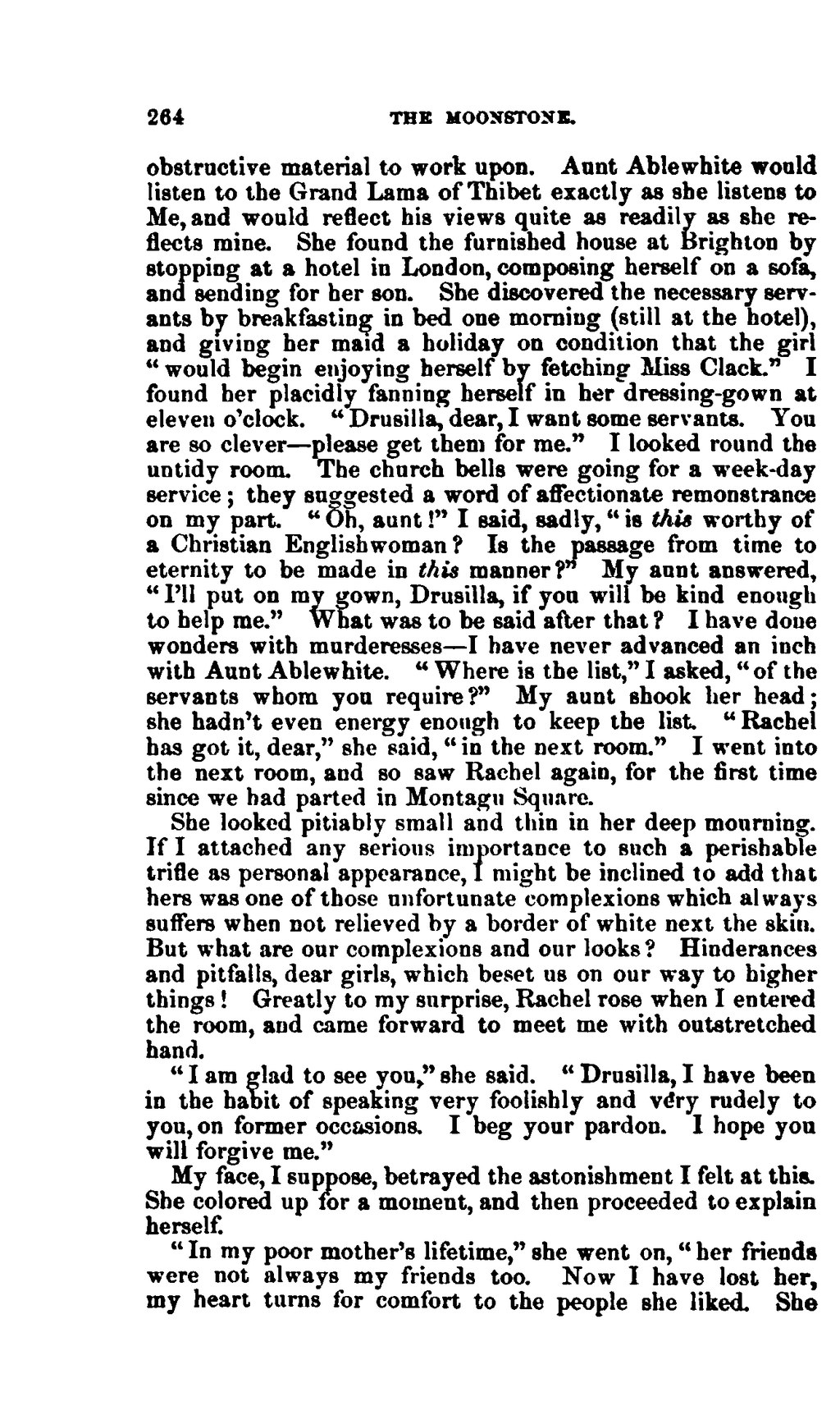obstructive material to work upon. Aunt Ablewhite would listen to the Grand Lama of Thibet exactly as she listens to Me, and would reflect his views quite as readily as she reflects mine. She found the furnished house at Brighton by stopping at an hotel in London, composing herself on a sofa, and sending for her son. She discovered the necessary servants by breakfasting in bed one morning (still at the hotel), and giving her maid a holiday on condition that the girl "would begin enjoying herself by fetching Miss Clack." I found her placidly fanning herself in her dressing-gown at eleven o'clock. "Drusilla, dear, I want some servants. You are so clever—please get them for me." I looked round the untidy room. The church bells were going for a week-day service; they suggested a word of affectionate remonstrance on my part. "Oh, aunt!" I said sadly. "Is this worthy of a Christian Englishwoman? Is the passage from time to eternity to be made in this manner?" My aunt answered, "I'll put on my gown, Drusilla, if you will be kind enough to help me." What was to be said after that? I have done wonders with murderesses—I have never advanced an inch with Aunt Ablewhite. "Where is the list," I asked, "of the servants whom you require?" My aunt shook her head; she hadn't even energy enough to keep the list. "Rachel has got it, dear," she said, "in the next room." I went into the next room, and so saw Rachel again for the first time since we had parted in Montagu Square.
She looked pitiably small and thin in her deep mourning. If I attached any serious importance to such a perishable trifle as personal appearance, I might be inclined to add that hers was one of those unfortunate complexions which always suffer when not relieved by a border of white next the skin. But what are our complexions and our looks? Hindrances and pitfalls, dear girls, which beset us on our way to higher things! Greatly to my surprise, Rachel rose when I entered the room, and came forward to meet me with outstretched hand.
"I am glad to see you," she said. "Drusilla, I have been in the habit of speaking very foolishly and very rudely to you, on former occasions. I beg your pardon. I hope you will forgive me."
My face, I suppose, betrayed the astonishment I felt at this. She colored up for a moment, and then proceeded to explain herself.
"In my poor mother's lifetime," she went on, "her friends were not always my friends, too. Now I have lost her, my heart turns for comfort to the people she liked. She
